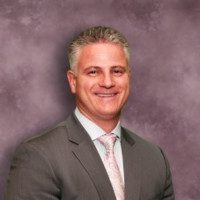
A 20-plus-year veteran of the GovCon space, MindPetal Executive Vice President and Chief Operating Officer Michael Agrillo is helping to modernize government. He’s working to grow the company’s federal footprint, while at the same time striving to create the kind of workplace environment that supports employee longevity.
We talked with Agrillo about MindPetal’s place in the market, where the opportunities lie and what strategies GovCons can use to address a changing federal procurement landscape.
How does MindPetal support government? What are your key offerings?
MindPetal’s mission is to provide leading-edge, transformative IT solutions, tailored to each customer’s unique needs. We have an acute focus on innovation and value creation for our customers. We specialize in modernizing legacy applications, legacy systems, using cloud-based, low-code/no-code solutions and business process management solutions.
What are the challenges your customers face?
For several years, there’s been a “do more with less” expectation, a consistent expectation for CIOs to throw technology and automation at problems to reduce cost. Additionally, we’re continuing to see an increase in the number and sophistication of cyberattacks. The work-from-home environment has exacerbated the problem by increasing the potential attack surface area..
Work-from-home also has created an expectation for government to provide really user-centric, personalized experiences. Businesses are really focused on this and have done a great job delivering these experiences, putting pressure on government to deliver a similar experience.
Where do you see opportunities for growth?
We have a large established base at Department of Labor right now: That’s where our company was built and we have grown from there. We have work at the Department of Agriculture and the National Park Service, and we are also now growing into the Department of Homeland Security .
We’re in the application modernization and optimization space, and within that, we see a lot of new ways to unlock all of the unstructured data that the government has accumulated over the years. There’s an opportunity to take this data that’s in silos and to pull all those pieces together, to really create that unique user experience.
To that end, we’ve created an Acceleration Center, and that includes an established “tiger team” of multidisciplinary experts with different backgrounds. We have created space and dedicated time for them to work on our customer problems and also on the larger “what’s next” type of problems. It goes back to providing innovative solutions and really creating value.
What’s the biggest business challenge you face?
Like everybody else in this space, it’s about finding and keeping great talent right now. That starts with the basic building blocks — a competitive salary, good benefits. Then you have to build a great culture, with challenging, rewarding work.
At the end of the day, it’s about being transparent. Folks are looking to be included in the business, included in the decision-making to the extent that they can be. People want to know you’re listening to what they are saying. It’s about valuing their expertise, and also helping them advance their careers. As we continue to grow, we’re putting in place a lot of new employee rewards systems.
How has the changing federal procurement landscape impacted your efforts?
Federal procurement officials are retiring, so the staff may not be as experienced as it once was. And they are outmanned, they’re outgunned by the contractor community from a legal perspective. Things are continuously getting protested and procurements are taking longer and longer.
The obvious impact is that the procurements are coming out and they’re not fully developed or vetted with the contractor community Ultimately, the contracting community suffers, the government suffers and citizens suffer because we’re not getting services delivered in a timely way and with good value.
What can GovCons do in this environment?
We’re working much more closely with the procurement offices, having conversations about what procurements should look like, what good evaluation criteria look like. We do a lot of general education on the different available vehicles. We also try to bring ideas from different agencies’ procurement shops. If one agency is doing something unique and interesting, I would mention that to another agency. We’re sharing that information wherever possible.
All of that helps us: We don’t have unlimited resources, so we need to be very judicious about what work we can pursue. And it helps government. At the end of the day, they’ll get higher-quality proposals.
You’ve been in government contracting for over 20 years. What makes this work rewarding for you?
I’m pleased to be able to contribute in a meaningful way to agency missions, which I believe in. There’s something patriotic about it: I believe in what we’re doing. We are involved in meaningful, impactful work. We’re trying to make things better, trying to improve citizen services or protect the country. I also think it is critical for us to be good stewards of taxpayer dollars. All those things are important and beneficial.
Also, I really like leading people and helping employees grow personally and professionally, helping them to grow and flourish throughout their careers. All of that is really important to me.

